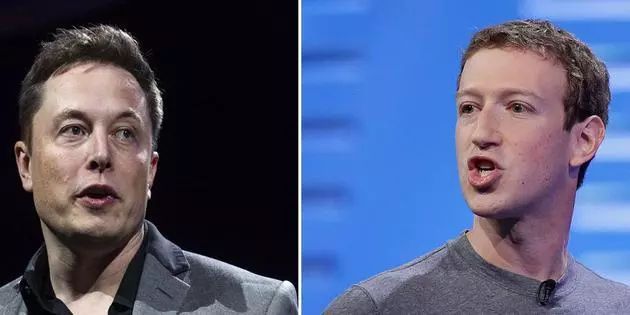This week's satellite event, the SpaceX spacecraft returned to bring surprises, while Facebook is developing satellite Internet to compete with SpaceX. According to SpaceX, the "Dragon" cargo spacecraft carrying scientific samples from the International Space Station successfully completed a water landing in the Pacific waters near California. It is reported that this is the third time SpaceX has used the recovered dragon spacecraft to complete the mission to and from the International Space Station. According to reports, the Longfei ship has a maximum effective payload of 6,000 kg and has delivered 2,630 kilograms of supplies and equipment to the space station. The "Dragon" spacecraft sent supplies and equipment to the International Space Station in early April, and now comes with about 2 tons of scientific samples. These samples need to be sent to the laboratory within 48 hours of landing. According to the report, the "Dragon" spacecraft is the only spacecraft in the world that can transport cargo from the International Space Station to the Earth. In addition, the Dragonship also brought back NASA's "Robot Astronaut 2" robot - designed to help astronauts in space handle everyday chores. “Robot Astronaut 2†failed in 2014, and NASA will analyze and repair its fault. It is understood that this return flight, the dragon spacecraft can be described as a very rich harvest, bringing back 1.8 tons of "space native products." These include human tissue and mice. Previously, the Dragon Spacecraft had carried a large number of scientific experimental samples into space, including the white mouse. For humans, this mouse, which has only lived on the International Space Station for a while, is of great research value and can be used to study the health effects of space flight. On January 13 this year, the US space exploration technology company's "Dragon" cargo spacecraft returned to Earth from the International Space Station, bringing back more than 1800 kilograms of cargo and scientific samples. According to Spectrum Beijing May 4th report, social giant Facebook or soon joined the ranks of SpaceX and OneWeb to provide Internet services from Earth orbit. A few days ago, a document submitted to the US Federal Communications Commission (FCC) was exposed, detailing a multi-million dollar test satellite. The satellite, codenamed "Athena," comes from a mysterious company called PointView Tech LLC. The satellite will transmit data at 10 times the speed of the SpaceX "Starlink Internet" satellite. However, PointView seems to be just a cover. In fact, it seems to be a new subsidiary that Facebook set up last year to ensure that social giants' plans to enter space will not be exposed. Many technology companies are very optimistic about using satellites to provide the Internet. Currently, about half of the world's population is not connected to broadband networks, especially those living in rural and developing countries. SpaceX hopes to launch 12,000 Starlinks satellites into low-Earth orbit to provide high-speed Internet to the ground. Competitor OneWeb is also working on a similar project, plans to launch 2,500 satellites, and is supported by Softbank, Qualcomm and Virgin Group. The document shows that by the time of 2019, PointView's "Athena" satellite will also take the Arianespace Vega rocket into low-Earth orbit. The satellite is about the same size and weight as the SpaceX and OneWeb satellites, but will use UHF millimeter-wave signals for faster data transfer. Before launching satellites, US space companies needed approval from the US Federal Communications Commission, and often began building satellites and ground stations long before submitting written work. According to the application, “PointView has started building satellite facilities and is at risk. We have notified the Federal Communications Commission in writing in July 2016 that we are planning to start building these facilities.†However, according to the records of the Delaware State Government, PointView was not established until April 2017. The company did not submit an annual report and did not disclose its directors or shareholders. However, a written clue points to Facebook. First, PointView has the same corporate agent in Delaware and other Facebook affiliates. In addition, the law firm that helped PointView submit the application documents to the Federal Communications Commission and Facebook's lawyers are the same. If Facebook wants to develop satellite Internet, it will need to replicate the strategy of SpaceX and OneWeb to launch thousands of satellites. However, this may cause concern to the US Federal Communications Commission because it is working hard to cope with space collisions. The China Unicom Communications Commission has approved SpaceX and OneWeb's satellite Internet projects. If Facebook is added, it will inevitably increase the congestion of the Earth's orbit. Pressure Gauge Case Type,Pressure Gauge Case Style,Pressure Gauge Case Material,Pressure Gauge Carrying Case Changshu Herun Import & Export Co.,Ltd , https://www.herunchina.com